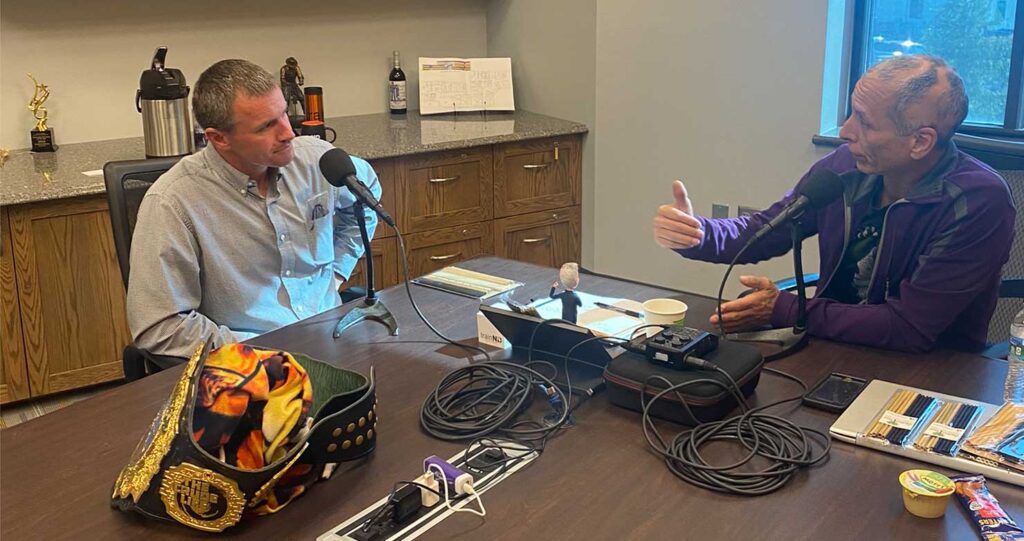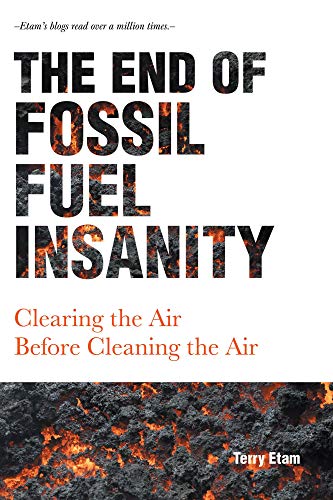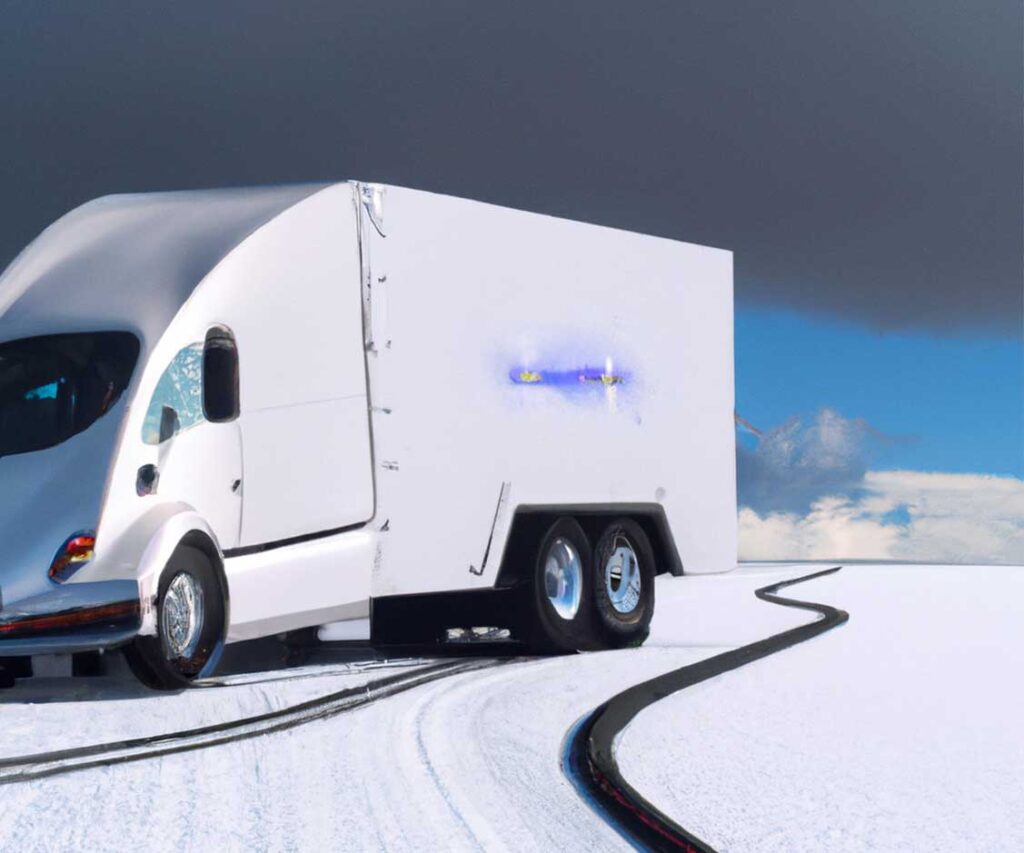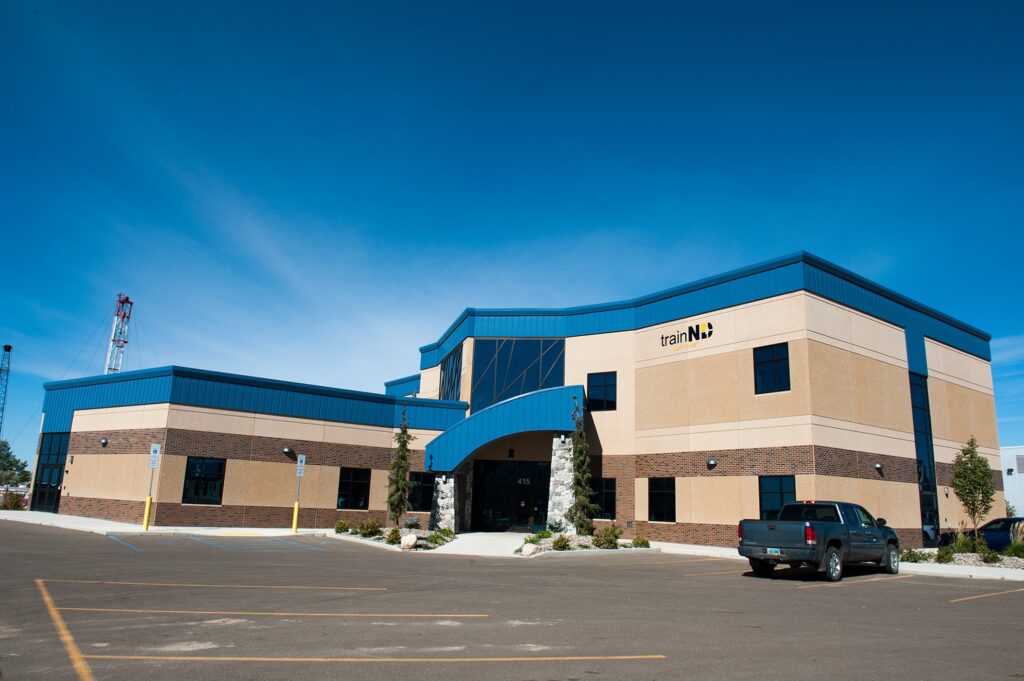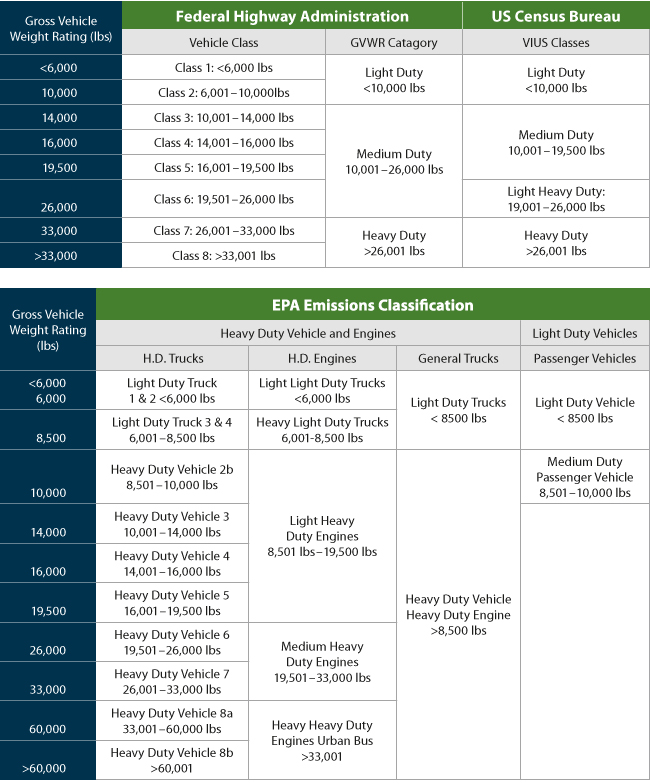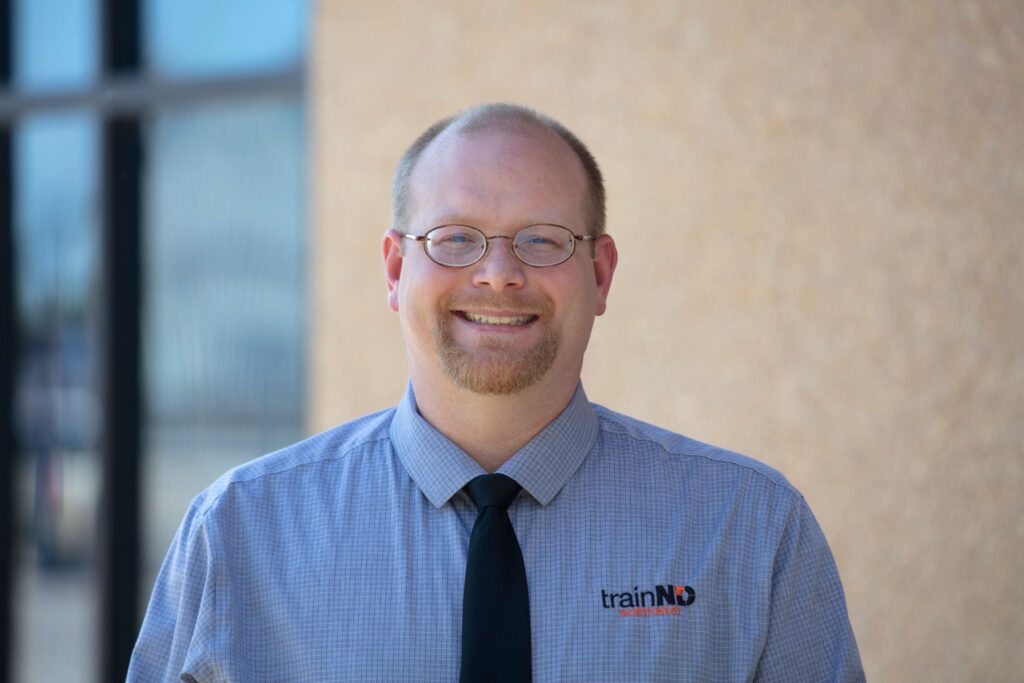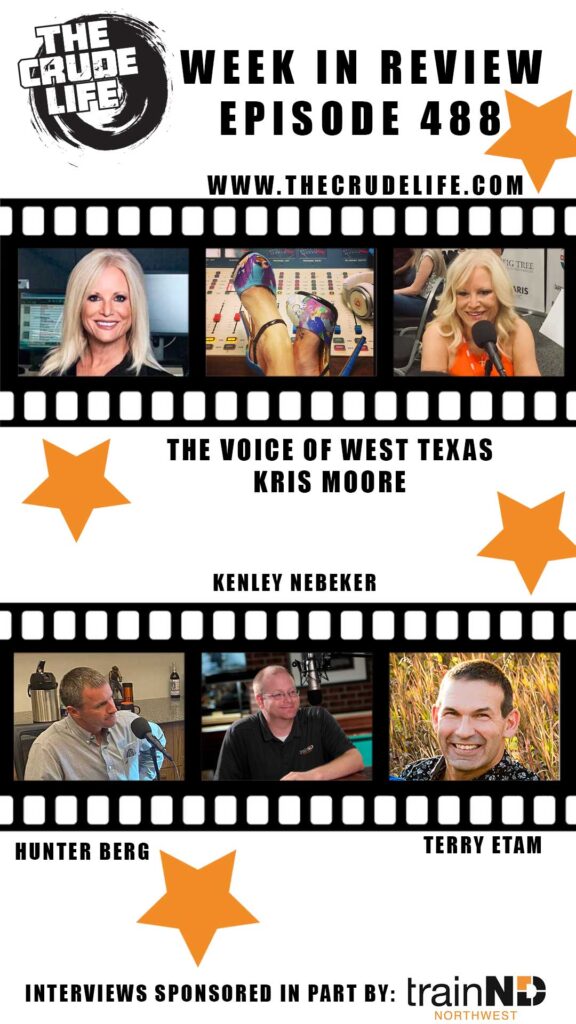

Here are this week’s special guests and energy experts on The Crude Life Week In Review Episode 488.
Hunter Berg has a fantastic job these days. Finding students who want a “free education” at Williston State College. According to Berg, executive director, Williston State College Foundation, the university has been blessed by the Bakken Boom.
Over the past 50 years, scholarships were created by the generosity of donors through a variety of ways from monetary gifts to mineral rights. Berg said it was the gift of mineral rights that really created the large scholarship pool for the college.
“The program is an amazing result of caring donors who wish to support the students of our area in pursuing a college degree by attending Williston State College,” Berg said.
Residents who graduated high school from one of the 53 counties included are eligible for a free education. In fact, the program has grown so much in size that it now includes Eastern Montana resident too.
“Williston State College and the Williston State College Foundation has available tuition and fees scholarships for those that qualify. The regional scholarship covers students who have graduated from high schools in 53 Counties in Western North Dakota and Eastern Montana,” Berg said, “From Bismarck to Billings really.”
The Williston State College Foundation is a nonprofit agency that manages donations made by community members and alumni to the college and its students. We identify wise investments, and fund student scholarships, quality faculty, and capital improvements to WSC. The WSC Foundation is governed by an independent board of 11 directors that meets monthly.
Click here for the full length interview and feature
Canada’s Greatest Export
Terry Etam, author of The End of Fossil Fuel Insanity: Clearing the Air Before Cleaning the Air, columnist for the BOE Report and writer for Public Energy Number One, gives an update on the oil and gas activity north of the border.
Canada’s Greatest Export shares a story about the country of Germany coming over to Canada to accelerate their divestment from fossil fuels and direct their attention towards hydrogen.
Etam, who also works with a Natural Gas Company, said they weathered the regulatory storm the past couple of years, and are back to a comfortable pace for business. He also elaborated on several of the Canadian Regulations that are hindering oil and gas development.
Host Jason Spiess and Etam discuss the current energy transition and image, citing Etam’s latest BOE Report article on Henry Ford’s introduction of automobiles to the marketplace and society.
People, particularly enthusiastic energy transition enthusiasts, like to point to instances in human history where a new technology rapidly wiped out an old one. Two pillars of this line of thought are the switch from horses to automobiles, and the one from land lines to cell phones.
Neither of these are particularly intelligent comparisons to an energy transition; both brought phase-change-equivalent upheavals to the way we lived. A car was able to expand one’s world dramatically compared to a horse, and cell phones brought an unimaginably huge catalogue of potential compared to a land line phone.
An energy transition will bring a modified and possibly less form of pollution and/or habitat destruction, but there will be no revolutionary uplifting of public life (evidence points to the opposite, if German firewood sales are any indication).
The interview talks about the importance of North American energy security and the flow of energy across the borders. Etam explains how this is critical to Canada’s fossil fuel industry.
Here is an excerpt from Etam’s latest column in Public Energy Number One:
Suppose a person starts a new business. Months of tireless effort ensue. It all works out. The business grows like crazy and within five years it employs a thousand people. The owner becomes wealthy.
Philosophical junction point: Did that person create a gift for society in the form of creating a thousand jobs, plus the ancillary spin off jobs created by their spending?
Or did the business owner become rich on the backs of employees, capturing the benefits of their labor for their own outsized benefit, while the employees did not become rich?
You will predominantly be drawn to one option or the other. That is the backbone of our modern free-market system, and the inherent greatness of our capitalist-based economies that are democracies – the push and pull between these two belief systems. We can rail against the other side all we like because it is a huge philosophical divide, but the fact is both types exist and have a voice/vote in a democracy.
The two also discuss inflation and how they both believe it hasn’t even begun. Agriculture issues, pesticide bans, Ukraine War and energy issues are the root causes discussed by Etam and Spiess on why inflation issues are just beginning.
Here is Amazon’s description of Etam’s book The End of the Fossil Fuel Insanity:
Everyone knows that fossil fuels won’t last forever. Something needs to change at some point, regardless of whether the issue is climate change or because we need a practical replacement for petroleum as cheap supplies run out.
But while headlines suggest that a green-energy paradise is around the corner, not many are aware of the immense technical challenges that stand in its way. To turn our backs on fossil fuels, a staggering amount of work will be required to refit a global energy sector that has grown systematically for over a century. News of the latest green advancements can make it seem like plug-and-play technology, and simply a matter of switching from one source to another. In reality, the challenge is far greater, and infinitely more complicated.
To make matters worse, environmentalists and fossil-fuel defenders wage continuous but fruitless war, and the growing gap makes it impossible to have any sort of constructive dialogue. Each camp becomes more locked in their position with every exchange, and the most revolutionary ideas never see the light of day. Instead of building, time and money are wasted sparring.
Sparing no sacred cows, Terry Etam cuts through the media rhetoric, government propaganda, and widespread ignorance of the energy sector to get to the heart of what needs to change—and what needs to stay the same—if the challenges of moving away from fossil fuels are to be met, while maintaining the quality of life we have come to expect and rely on.
Click here for full length interview with Terry Etam
In the third part of this series following EVolution Hybrid, a project integrating a traditional semi truck with a combustion engine with a EV battery and electric vehicle technology we discuss towing, torque, temperature and range anxiety. In this exclusive interview with Levi Perkins, Perkins Electric Innovation, and Kenley Nebeker, TrainND Northwest, the two discuss how EVolution Hybrid is ready to take on these traditional challenges, plus a couple anticipated ones too.
One area of challenge is towing.
“If we have a greater amount of weight that we are towing or resistance whether it be a vertical incline or bad roads or a low tire, just things that will impact how much power we are using and increase the amount of amperage by the motor, and that would consume the battery quicker.”
Towing creates conversations about torque as well.
“The electric motors we are using they can build what we call Peak Torque at a really low if not zero RPM,” Perkins said. “This is different from a reciprocating piston where your peak torque could be at a specific RPM usually in the RPM range.”
The interview also discussed tires and how many electric vehicles have specific tires for the vehicle and if someone put new tires on, it impacts how far you can drive. So does temperature.
“An individual going to see his son on Christmas on the east coast was set to drive 200 miles in the below freezing temperature after he hit the SuperCharge Station close to his house,” Perkins said. “When he left his garage the Tesla battery was warm enough to start and drive, only when he got to the charge station and at that point the battery has discharged some but it’s cool enough it will not allow him to charge.”
This transitioned into one of the biggest issues right now for the EV Transition is “Range Anxiety”. Nebeker has had first hand experience and says it is a real thing.
“I experienced range anxiety first hand and absolutely it is real,” Nebeker said. “That question of am I going to get where I need to get is a real worry with range anxiety. With an internal combustion engine with gas motors, you know you have until empty then you have to fill it up. It’s a consistent draw versus unpredictability really.”
In Part Two, the two talked about time and money.
When it comes to life, time is money. In transportation it’s time and weight that equal money. Well in the world of EV Transportation, it’s time, weight and temperature that mean money.
In Part One, the two gave an overview of project EVolution Hybrid, which is integrating an electric battery into a traditional combustion engine while maintaining the classic trucking look. With maybe a hint of flare or contemporary fashions.
“One of the things we looked at with the EVolution Hybrid is the future of the transportation and trucking industry,” Kenley Nebeker, executive director, TrainND Northwest said. “We are really trying to find a way to expose our students and the community to the potential that lies within the electric truck, or in this case a hybrid truck. I’ve never been a believer in all-one-way or another.”
Nebeker is referring to an all EV solution or an all fossil fuel solution. Nebeker believes this project will shine a light on how a “marriage” between the two concepts will ultimately become a viable solution to an energy transition.
“One important part of this project is the look,” Nebeker said. “I like that traditional Americana semi truck look and understand that still connects with the public too.”
One of the ways the electric combustion collaboration can occur is weight. According to Perkins, the weight of fuel, the batteries and cargo are factors when determining your bottom line in business.
“Most Class A trucks vary as there are different models from the manufacturers, but there’s a lot that is similar” Perkins said. “The less a truck can weigh, the more freight you can haul and essentially, generate higher revenues because of it.”
For fleets, this could have significant savings. Perkins dives into the details of sleeper cabs, drop steer axles and other accessories when discussing the weight and revenues in trucking. All these additional details matter when discussing electric batteries and transition.
“Most electric trucks are going to be in the 400-600 kilowatt hour range. Tesla just released a 1000 kilowatt hour battery,” Perkins said. “But interestingly enough in the past three years the battery technology has allowed us to have reductions in weight but still, it is over 10,000 pounds in battery weight.”
The interview also discussed the difference between fuel weight and battery weight. Which would save money in the long haul? Host Jason Spiess cited an example of an interview with Keri Frank, CEO, Comply365, and her integration of iPads in aviation.
“Before iPads, the industry had a 50-plus-pound black metal box that contained procedure papers required by law,” Spiess said. “After Keri Frank got the industry to transition those papers to an iPad, not only did they see an immediate impact by not printing new sheets every time a new code was issued. But the real savings they saw was over a year in fuel savings. The weight over time was nickels turning into dollars.”
Both Nebeker and Perkins agreed with the sustainable savings and how trucking companies will see similar results.
Another area of change or transition EVoltion Hybrid will see is jobs. Nebeker is anticipating changes with mechanics, IT and other areas of trucking and transportation, and is in constant contact with the supply chain and supporting cast.
Here are some supporting interviews for EVoltion Hybrid and the community of Williston, ND.
Williston’s Wenko Says Economic Development Getting More Diverse
Williston Mayor Talks About The Bakken’s Continued Community Growth
Bakken Small Businesses Staying Busy
Bakken Boom Created An Astounding Educational Opportunity For Williston State Students
The project is scheduled to take 9-12 months, depending on the supply chain, according to Nebeker.
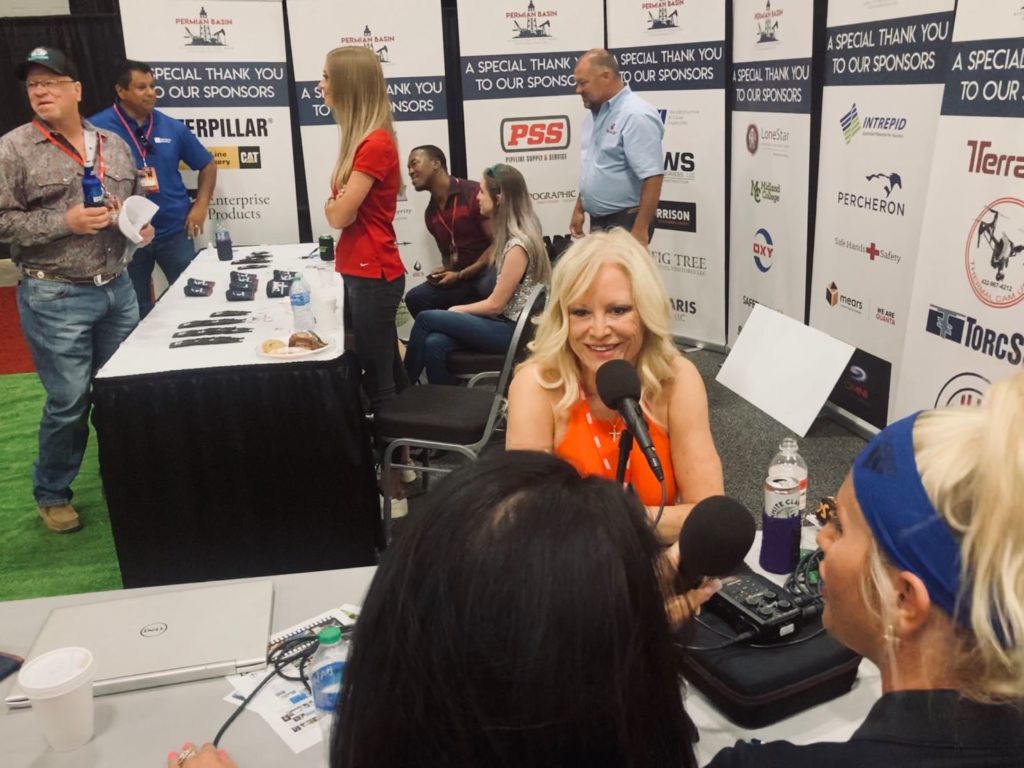
The Voice of West Texas Kris Moore leads a discussion about what it is like for women working in the Permian Basin.
In this exclusive interview with The Real Oilfield Women of the South, Heather Ferrill announces she has accepted a new position with Thomas Oilfield Services.
After a quick congratulations and an overview of Thomas’ services, the three dive right into a real lifestyle issue in the oil patch.
Franki starts off the round table discussion on how to balance the work involved in the oilfield and family life. Franki, a single mother of three, talks about her support system for her three children and how the industry has become a surrogate family.
Tiffany grabs that baton and balances the single mother living in multiple cities. She talks about having several places to call home is the right fit for her work home balance.
Heather continues the work home balance conversation and brings it back to the two other girls involved the interview how they are her family too. They joke about picking up each other’s kids and taking them to dinner while the other is wrapping up at work.
After the three describe what life is like for a woman working in the oil patch, they give a quick boots on the ground update from the Haynesville DUG Conference.
Music heard on The Crude Life Week in Review is written and performed by Alma Cook of Cook Compliance Solutions. Support her music career at www.hearalma.com
Interviews are sponsored in part by
TrainND Northwest – It’s a competitive world. Train for it.
MineralTracker powered by First International Bank
The Industrial Forest – It Takes An Industry To Build A Forest
MyPillow – Up to 80% Off with the Promo Code – OTIS
Submit your Article Ideas to The Crude Life! Email studio@thecrudelife.com
About The Crude Life
Award winning interviewer and broadcast journalist Jason Spiess and Content Correspondents engage with the industry’s best thinkers, writers, politicians, business leaders, scientists, entertainers, community leaders, cafe owners and other newsmakers in one-on-one interviews and round table discussions.
The Crude Life has been broadcasting on radio stations since 2012 and posts all updates and interviews on The Crude Life Social Media Network.
Everyday your story is being told by someone. Who is telling your story? Who are you telling your story to?
#thecrudelife promotes a culture of inclusion and respect through interviews, content creation, live events and partnerships that educate, enrich, and empower people to create a positive social environment for all, regardless of age, race, religion, sexual orientation, or physical or intellectual ability.
Sponsors, Music and Other Show Notes

Studio Sponsor: The Industrial Forest
The Industrial Forest is a network of environmentally minded and socially conscious businesses that are using industrial innovations to build a network of sustainable forests across the United States.
Weekly Sponsor: Stephen Heins, The Practical Environmentalist
Historically, Heins has been a writer on subjects ranging from broadband and the US electricity grid, to environmental, energy and regulatory topics.
Heins is also a vocal advocate of the Internet of Everything, free trade, and global issues affecting the third of our planet that still lives in abject poverty.
Heins is troubled by the Carbon Tax, Cap & Trade, Carbon Offsets and Carbon Credits, because he questions their efficacy in solving the climate problem, are too gamable by rent seekers, and are fraught with unreliable accounting.
Heins worries that climate and other environmental reporting in the US and Europe has become too politicized, ignores the essential role carbon-based energy continues to play in the lives of billions, demonizes the promise and practicality of Nuclear Energy and cheerleads for renewable energy sources that cannot solve the real world problems of scarcity and poverty.
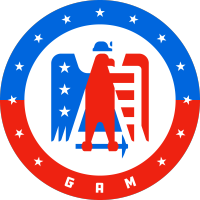
Weekly Sponsor: Great American Mining Co
Great American Mining monetizes wasted, stranded and undervalued gas throughout the oil and gas industry by using it as a power generation source for bitcoin mining. We bring the market and our expertise to the molecule. Our solutions make producers more efficient and profitable while helping to reduce flaring and venting throughout the oil and gas value chain.

Join Podcasters from across the world and all walks of life as they unite to bring civil solutions to life and liberty.

Studio Email and Inbox Sponsor: To Be Announced

Featured Music: Alma Cook
For guest, band or show topic requests, email studio@thecrudelife.com
Spread the word. Support the industry. Share the energy.

